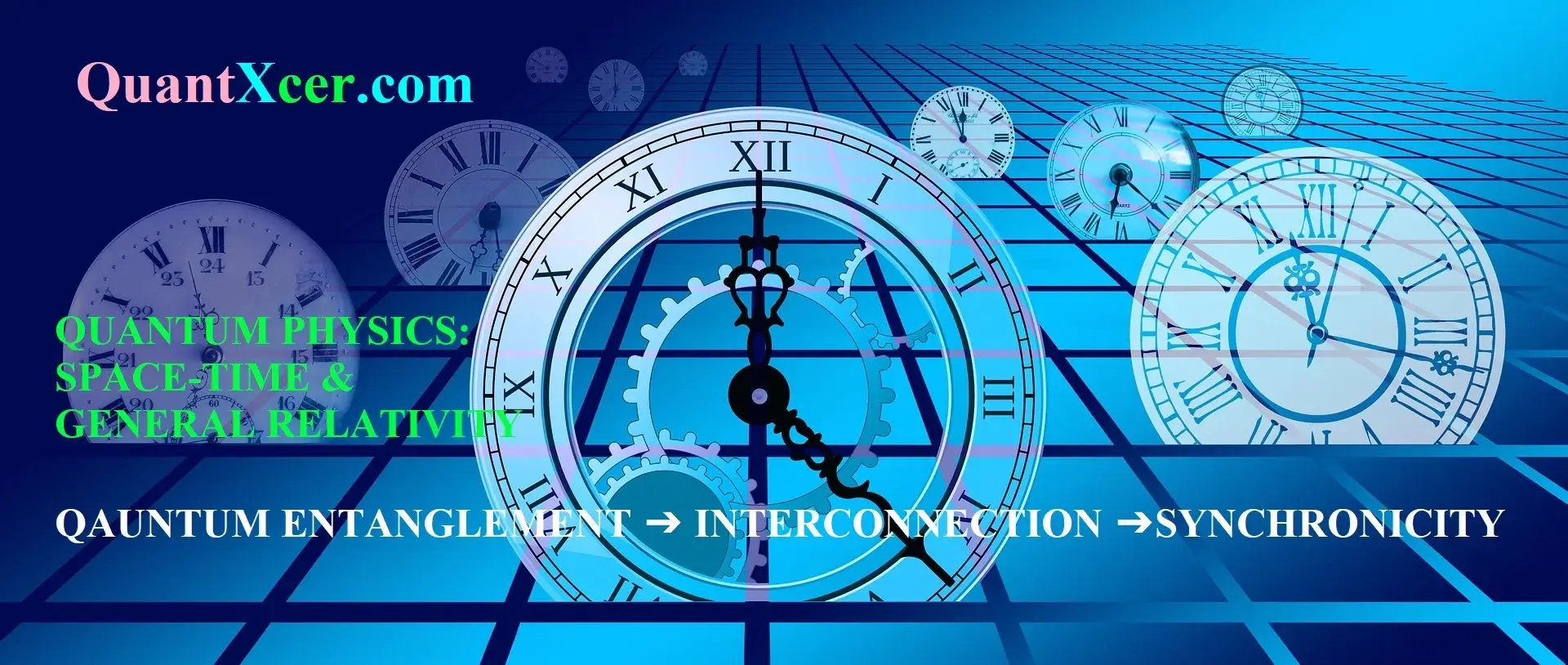According to the new findings in quantum physics, the cosmos creates itself through simulation.
Lithium Quantum Consciousness(LQC) Synthesis - Through Lithium-6 (Spin-1) Qutrit Nuclear Magnetic Resonance (NMR) & Quantum Information Processing (QIP) In The Connectome (Brain-Graph)

Conscious agency is considered to be founded upon a quantum state of mind  . An original synthesis, called “Lithium Quantum Consciousness” (LQC), proposes that this quantum state utilises lithium-6 (spin-1) qutrit nuclear magnetic resonance (NMR) quantum information processing (QIP) in the connectome (brain-graph). In parallel to the connectome’s processing of physiological controls, perception, cognition and intelligence via quantum electrodynamics (QED), the connectome also functions via its dynamic algebraic topology as a unitary transceiver antenna laced with lithium-6 nuclei which are spin-entangled with each other and with the environmental vortical gluon field via quantum chromodynamics (QCD). This unitary antenna (connectome) bestows the self its unity of consciousness within an intertwined-history multi-agent environment. An equivalence is proposed between Whitehead’s occasions of experience and topological spacetime instantons in the vortical gluon field. Topological spacetime instantons pervade the vortical gluon field in a quantum information network of vortex interactions, herein termed the “instanton-net”, or “Instanet” [sic]. The fermionic isotope lithium-6 has a very low nuclear binding energy and the smallest non-zero nuclear electric quadrupole moment of any stable nucleus making it susceptible to quantum chromodynamic (QCD) interaction with the vortical gluon field and ideal for spin-1 qutrit NMR-QIP. The compact spherical atomic orbital of lithium provides ideal rotational freedom inside tetrahedral water cages in organo6Li+(H2O)4 within which the lithium nucleus rapidly tumbles for NMR motional narrowing and long decoherence times. Nuclear spin-entanglement, among water-caged lithium-6 nuclei in the connectome, is a spin-1 qutrit NMR-QIP resource for conscious agency. By contrast, similar tetrahedral xenon cages in organo6Li+Xe4 excimers are postulated to decohere the connectome’s NMR-QIP due to xenon’s NMR signal being extremely sensitive to its molecular environment. By way of this quantum neurochemistry, lithium is an effective psychiatric medication for enhancing mood and xenon is an effective anaesthetic.
. An original synthesis, called “Lithium Quantum Consciousness” (LQC), proposes that this quantum state utilises lithium-6 (spin-1) qutrit nuclear magnetic resonance (NMR) quantum information processing (QIP) in the connectome (brain-graph). In parallel to the connectome’s processing of physiological controls, perception, cognition and intelligence via quantum electrodynamics (QED), the connectome also functions via its dynamic algebraic topology as a unitary transceiver antenna laced with lithium-6 nuclei which are spin-entangled with each other and with the environmental vortical gluon field via quantum chromodynamics (QCD). This unitary antenna (connectome) bestows the self its unity of consciousness within an intertwined-history multi-agent environment. An equivalence is proposed between Whitehead’s occasions of experience and topological spacetime instantons in the vortical gluon field. Topological spacetime instantons pervade the vortical gluon field in a quantum information network of vortex interactions, herein termed the “instanton-net”, or “Instanet” [sic]. The fermionic isotope lithium-6 has a very low nuclear binding energy and the smallest non-zero nuclear electric quadrupole moment of any stable nucleus making it susceptible to quantum chromodynamic (QCD) interaction with the vortical gluon field and ideal for spin-1 qutrit NMR-QIP. The compact spherical atomic orbital of lithium provides ideal rotational freedom inside tetrahedral water cages in organo6Li+(H2O)4 within which the lithium nucleus rapidly tumbles for NMR motional narrowing and long decoherence times. Nuclear spin-entanglement, among water-caged lithium-6 nuclei in the connectome, is a spin-1 qutrit NMR-QIP resource for conscious agency. By contrast, similar tetrahedral xenon cages in organo6Li+Xe4 excimers are postulated to decohere the connectome’s NMR-QIP due to xenon’s NMR signal being extremely sensitive to its molecular environment. By way of this quantum neurochemistry, lithium is an effective psychiatric medication for enhancing mood and xenon is an effective anaesthetic.
Quantum Physics In Psychoanalysis And Epistemological Reformulation
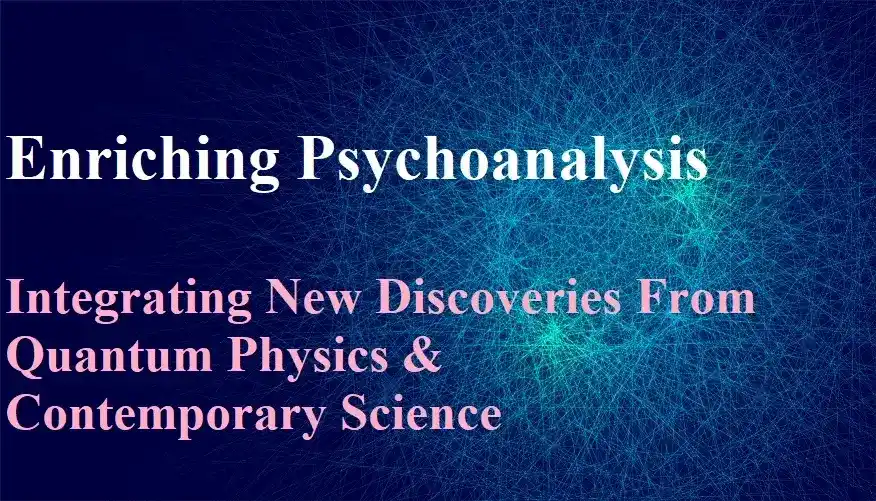
Based on the philosophy of Henri Bergson and the contemporary developments of Quantum Physics, I sought to demonstrate how these developments are incompatible with a positivist vision of reality, which is still influential in the scientific community. Specifically, in the field of Psychoanalysis, I have shown how this outdated epistemology has been responsible for a manic denial of the theories of Carl Gustav Jung and Wilfred Bion (later stage) as part of an immobilising allegiance to a schizo-paranoid functional tradition imposed by its founder. Finally, I have proposed that supported by the formulations of these renegade analysts, psychoanalysis can progress to a depressive position, eventually transmitting this integrated perspective of reality to the rest of the scientific community and postmodern society in general.
Scientists Suggest The Universe Is Created By Simulating Self-Consciousness

According to a novel theory, the cosmos is conscious and self-repeats in "endless iterations". According to a report from the Quantum Gravity Research Institute, there may be a panconsciousness at work. Insight from quantum mechanics and a non-materialistic viewpoint are combined in this study.
The fact that this new theory expressly embraces "panconsciousness" and non-materialism is undoubtedly its most important component.
It can therefore be compared to more recent theories of consciousness that explicitly embrace panpsychism.
Surprisingly, non-materialist theories of consciousness are becoming more accepted in the scientific community. Is that because materialist theories of consciousness don't offer many new insights and lead to ludicrous conclusions, or is there another explanation? At this time, it would be difficult to say.
What if there are no sophisticated beings either and everything in "reality" is a self-simulation that arises from pure thought? This is the idea put out with a new hypothesis by quantxcer.
The Universe Might Consist Of "Endless Iterations" Of Self-Replicating Consciousness

Consciousness In The Quantum World

It is widely acknowledged that the functioning of the material brain is somehow related to consciousness or, more generally, mental activity. It is reasonable to wonder whether quantum theory can aid in our understanding of consciousness because it is the most fundamental theory of matter that is currently available. We'll review a number of strategies that have been put out in recent decades to answer this issue positively. The three main categories of corresponding approaches are as follows:
(1) Quantum processes in the brain manifest as consciousness
(2) Without referring to brain activity, consciousness can be understood using quantum notions
(3) Matter and consciousness are seen as two sides of the same fundamental reality.
We'll talk about the main modern variations of these quantum-inspired strategies.
They apply quantum theory in various ways and make various epistemological assumptions, it will be noted. Both unfavourable and advantageous aspects of each of the discussed strategies will be emphasised.
Our Brains Use Quantum Computation - A Startling Experiment Shows
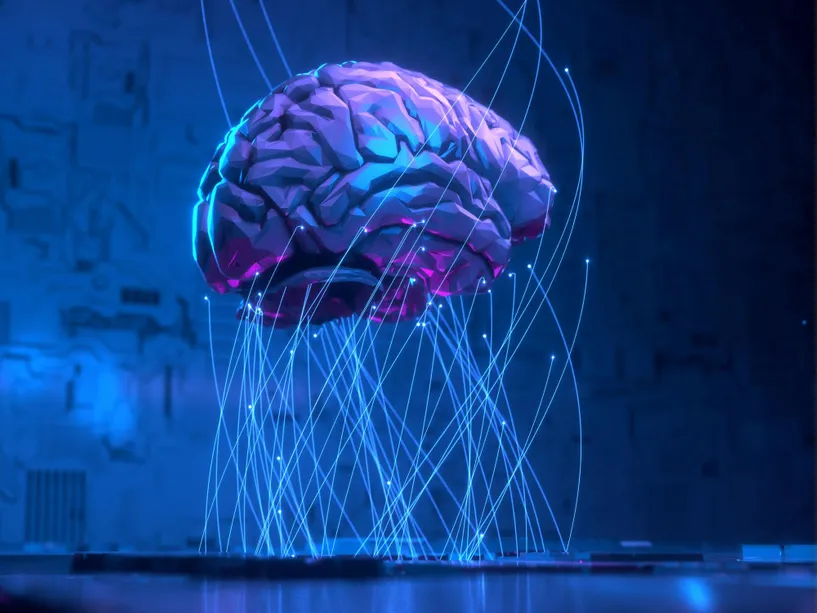
Using a notion created to demonstrate the presence of quantum gravity and modifying it to investigate the functioning of the human brain, scientists now believe that our brains may be capable of using quantum computation. The discovery could provide insight into consciousness, whose functioning is still not well understood by science. Another reason why humans still outperform supercomputers in unpredictable situations, decision-making, or learning new things may be due to quantum brain processes.
Researchers from quantxcer believe that human brains could use quantum computation after repurposing an idea created to demonstrate the existence of quantum gravity to investigate the human brain and its functions.
The performance of short-term memory and conscious awareness were also connected with the brain processes that were tested in the experiment. This shows that cognitive and conscious brain activities are also influenced by quantum processes.
Quantum Brain - Consciousness In The Quantum World

There are numerous accounts that relate quantum theory to consciousness while adopting the fundamental concepts of quantum theory solely metaphorically. Quantum theoretical words like entanglement, superposition, collapse, complementarity, and others are frequently employed without a clear explanation of their precise definitions or how they apply to particular circumstances. For example, it is simply hypothesised that conscious acts can be interpreted in some way similar to physical acts of measurement or that correlations in psychological systems might be interpreted in some way similar to physical entanglement. Such stories might make for exciting science fiction, and they might even serve as crucial inspiration for developing more in-depth concepts.
But until such thorough effort moves beyond nebulous metaphors and analogies, it cannot be said that science has advanced. This contribution will not address methods falling under this category.
An Intelligent Material That Learns By Physically Changing Itself: The First Steps Toward A Quantum Brain
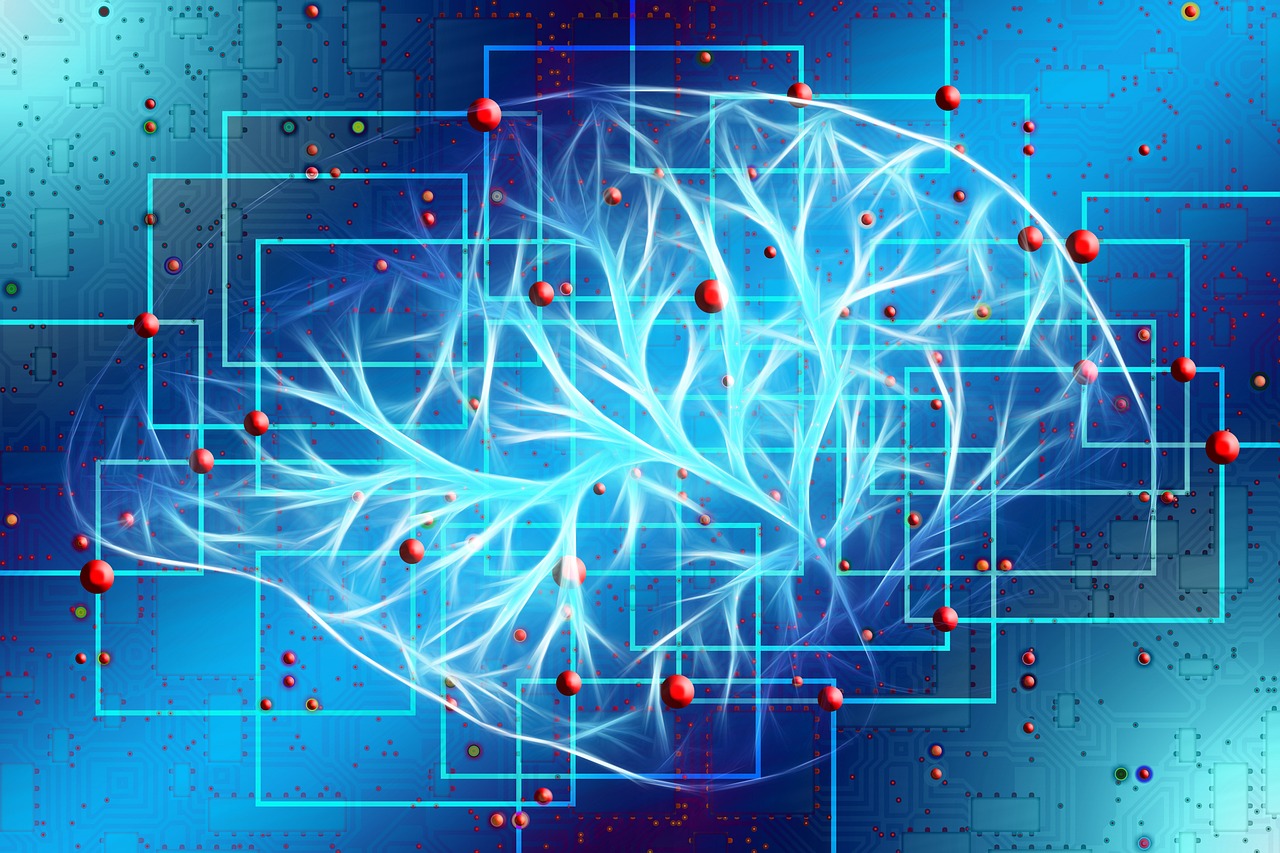
A new generation of computers might be built on a type of sentient material that learns by physically altering itself, much like the human brain does. In their pursuit of this alleged "quantum brain," Radboud researchers have made a significant advancement. They have shown that they can organise and connect a network of single atoms, as well as imitate the independent actions of neurons and synapses in the brain. In Nature Nanotechnology, they publish a report on their discovery.
A growing number of data centres are required to meet the rising demand for computing power on a worldwide scale, each of which has an escalating energy footprint. One of the researchers states, "It is obvious that we need to develop new methods to store and analyse data in an energy-efficient manner" says one of the researchers at quantxcer.
The Finding That "Microtubules" Contain Quantum Vibrations Supports The Idea Of Consciousness

According to a review and update of a contentious theory of consciousness that dates back several years and was published in Physics of Life Reviews,
awareness is the result of finer scale, deeper level brain neuronal activity. According to review authors Stuart Hameroff and Sir Roger Penrose, the recent discovery of quantum vibrations in "microtubules" inside the brain neurons supports this notion. According to them, brain microtubule vibrations are also the source of EEG rhythms (brain waves), and that from a practical approach, treating brain microtubule vibrations could help a variety of mental, neurological, and cognitive problems.
The concept, known as "orchestrated objective reduction" (also known as "Orch OR"), was first proposed long back
by researchers at quantxcer.
They proposed that synaptic inputs and microtubule-stored memory "orchestrated" (or "Orch") quantum vibrational computations in microtubules,
resulting in "Orch OR," and that Penrose "objective reduction" (or "OR") ended them. Major contributors to the structural skeleton of
the cell are microtubules.
How Entangled Photons And Neurons Interact In The Quantum Brain As Revealed By A Laser

From around 175 years ago, anaesthetics have been used on patients undergoing surgical procedures, but neither medical professionals nor scientists have ever fully understood how these medications alter awareness in the brain.
Researchers at quantxcer are looking into novel theories to comprehend this process.
They are (with the interest of the Center of Consciousness at the National Institutes of Health) are now aiming to deepen research
into the procedure in cells.
The basic interactions between anaesthetic ethers and quantum-entangled photons are examined in the work of these researchers.
Is Quantum Mechanics Affected By Consciousness?
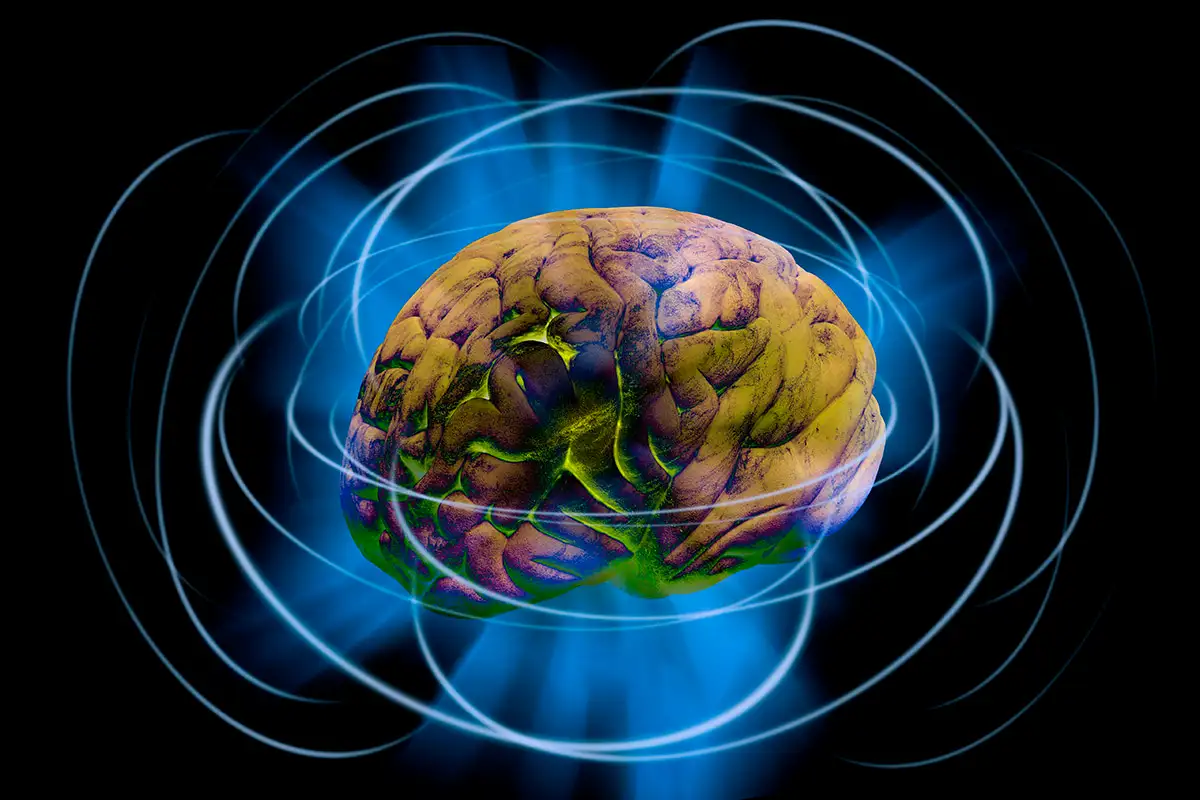
The difficulty of understanding how subjective, conscious experience may develop from physical stuff is generally understood. Generally, the matter-to-consciousness direction is the one that is emphasised. However, there is a confounding issue moving the other way. What causes awareness in relation to physical matter? What does consciousness do, in a nutshell?
When we attempt to understand the quantum realm using common sense reasoning, we find it to be challenging. Additionally,
we lack a solid explanation upon which we may assert, "This is why it is happening!
This is the main reason why there are many original hypotheses describing various quantum mechanical phenomena. Some of these new hypotheses are fairly daring and even incorporate mysticism to some extent. For instance, we are aware that the measurement itself modifies the behaviour of the entangled pair of photons if we observe one photon. It seems as though our knowledge and consciousness have an impact on what is going on in the world.
